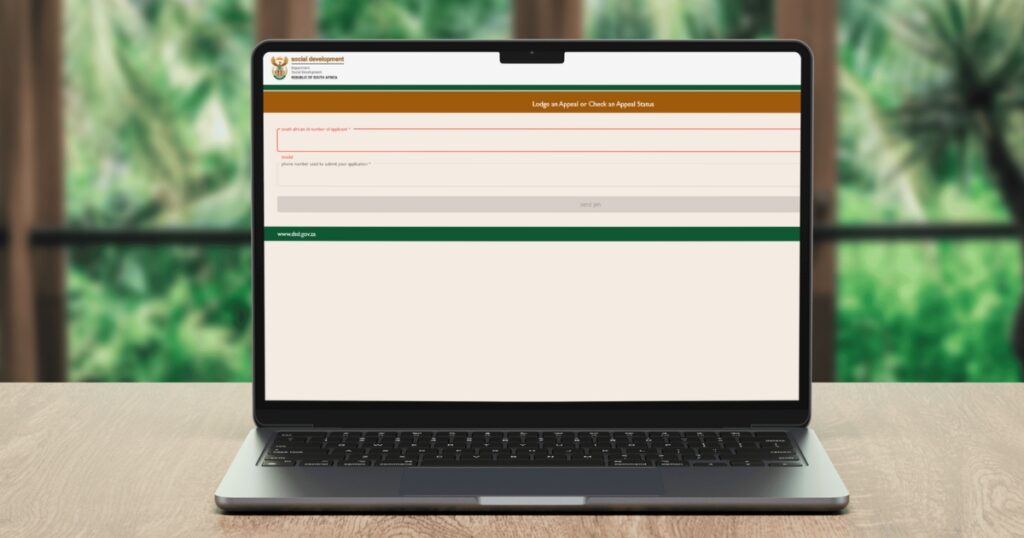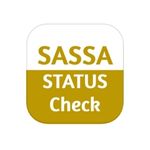
The South African Social Security Agency (SASSA) provides different types of social grants to individuals who are in need of financial assistance. These grants are aimed at helping vulnerable groups, such as the elderly, disabled, and children, to meet their basic needs and improve their quality of life. The importance of SASSA grants cannot be emphasised enough, as they serve as a lifeline for many South Africans who struggle to make ends meet.
However, not all grant applications are successful, and some applicants may receive a rejection letter from Sassa. This can be a devastating blow to those who were relying on the grant to survive. Fortunately, there is an appeal process in place that allows rejected applicants to challenge the decision made by Sassa.
The appeals process is designed to ensure that all applicants receive a fair and impartial assessment of their eligibility for social grants. It provides a mechanism for rejected applicants to present new evidence, correct errors or address any misunderstandings that may have led to their rejection.
Key Takeaways
- Common Reasons for Rejection: Applications may be declined due to incomplete forms, not meeting eligibility criteria, inadequate documentation, submitting duplicates, or fraudulent activity.
- Appeal Procedure: To lodge an appeal, acquire and complete the appeal form, attach the required documents, and submit them to a nearby SASSA office. Monitor the progress of your appeal to ensure its progressing.
- Necessary Documentation: Crucial documents for an appeal encompass proof of identity, bank statements, medical records, proof of address, and sworn statements.
About Arcadia Finance
Obtain loans effortlessly with Arcadia Finance. Our system facilitates a hassle-free application process, providing you with loan options from 19 reputable lenders. We ensure that all our lending partners comply fully with the regulations set forth by the National Credit Regulator in South Africa.
Reasons for Grant Rejection
There are several reasons why a Sassa grant application may be rejected. Some of the most common reasons for grant rejection may include:
- Incomplete or incorrect application: If an application form is incomplete or contains incorrect information, it will likely be rejected. This can include missing documents, incomplete personal information, or inaccurate financial details.
- Failure to meet eligibility criteria: Each type of Sassa grant has specific eligibility criteria that applicants must meet to qualify. If an applicant does not meet the necessary requirements, their application may be rejected.
- Insufficient supporting documentation: Along with the application form, Sassa requires applicants to submit various supporting documents, such as identity documents, proof of income, and medical reports. If these documents are missing or insufficient, the application may be rejected.
- Duplicate application: If an applicant submits multiple applications for the same grant, all the applications may be rejected.
- Fraud or misrepresentation: If Sassa determines that an applicant has provided false information or engaged in fraudulent behaviour, their application will be rejected.
It is important to note that not all grant rejections are the result of an error or oversight on the part of the applicant. In some cases, the rejection may be the result of a lack of funds or other administrative issues. Regardless of the reason for rejection, applicants have the right to appeal the decision and challenge the rejection.

How To Check Your SASSA Application Status
Before submitting an appeal, it is recommended that you first verify the outcome of your original application. There are several ways to check your SASSA status:
Contact SASSA By Phone Or Email
Phone the SASSA national call centre or the relevant regional office to ask for your application update. You may also send an email to enquiries@sassa.gov.za and include both your South African ID number and the reference number issued when you applied.
Check Through The Online Platform
Visit srd.sassa.gov.za/sc19/status or use the official SASSA Status Check tool online. Log into your account and view the current status of your application directly on the site.
Go To Your Local SASSA Office
Bring your green barcoded ID book or smart ID card to the same office where you submitted your application. A SASSA officer will assist in checking the progress and inform you of any changes.
Look Out For Status Updates By SMS
Review any text messages received on the mobile number you used when applying. SASSA may send SMS notifications indicating whether your application was approved, pending, or declined.
Be Aware Of The Appeal Timeframe
You must confirm that your application was declined before beginning the appeal process. Make sure you take action within the appeal period, as late submissions may not be accepted.
Submitting the right documents when appealing a SASSA grant decision is crucial. Knowing what counts as proof of income can streamline your appeal process and increase your chances of success.
» MORE: Learn about the next SASSA payment date

How to Lodge an Appeal
If your application for a SASSA grant application has been declined and you believe this was an error, you can appeal the decision by following these steps.
Step-By-Step Process for SASSA Grant Appeals
| Step | Description |
|---|---|
| Collect the Appeal Form | Go to your nearest SASSA regional office and request a Social Grant Appeal Form at the Customer Service desk, or download it directly from the official SASSA website. |
| Fill Out the Appeal Form Accurately | Use black ink to complete every section of the form. Clearly explain why your application was rejected, outline the reasons for your appeal, and list any additional documents you are submitting to support your case. |
| Compile Supporting Documents | Gather any new documents not included in your original application, such as updated medical reports or recent proof of income. Make certified copies of everything to strengthen your appeal submission. |
| Submit Your Appeal in Person | Return to the same SASSA office where you applied, bringing your green barcoded ID and submitting your appeal in person. Fingerprints will be taken to verify your identity, and you’ll receive an SMS confirming receipt. |
| Wait for the Outcome of the Appeal | The provincial Appeals Committee will review your case at their next meeting. You’ll get an SMS on the status of your appeal once a decision has been made. If approved, grant processing will continue; if declined, you will be given reasons for the outcome. |
It is important to provide all relevant information when appealing a rejected grant application. This includes any new evidence or information that was not included in the initial application. The more information you provide, the stronger your case will be.
During the process of appealing a SASSA grant decision, it’s essential to have all your information up-to-date and accurate to avoid any further complications. One crucial aspect is ensuring that SASSA has your correct banking details. You can submit your banking details to SASSA by following the instructions provided on their official website. By keeping your banking information current, you can facilitate a seamless transfer of funds once your appeal is successful and your grant is approved.
What to Expect After Submitting Your Appeal
| Aspect | Details |
|---|---|
| Confirmation of Receipt | After submitting your appeal at the SASSA office, you should receive an SMS confirming that your appeal has been logged into the system. |
| Follow-Up Options | You can monitor your appeal by visiting your local SASSA office, calling the toll-free helpline at 0800 60 10 11, or using the online status check at srd.sassa.gov.za. |
| Processing Time Frame | SASSA aims to finalise appeals within 90 days. However, delays may occur depending on the complexity of your case and administrative capacity. |
| Possible Outcomes | Your appeal may be approved, partially approved, or declined. If approved, payment processing resumes. If declined, you will be given reasons and may have the option to appeal further. |
| Appealing Further | If you disagree with the outcome, you may escalate your case to the SASSA Appeals Board, submitting new evidence or clarification. Their decision is considered final unless legal channels are pursued. |
While navigating the process of appealing a SASSA grant decision, you may find yourself in a situation where you no longer need the grant or have become ineligible for it. If this occurs, it’s essential to cancel your SASSA relief grant promptly, ensuring you do not receive undue financial support. By taking this responsible step, you not only keep your records in order but also allow SASSA to better allocate resources to those who are most in need.

Document Requirements for Appeal Application
To proceed with an appeal for a social grant or the Social Relief of Distress (SRD) grant, you must submit all relevant supporting documents. These are used to verify your eligibility and ensure your appeal is properly assessed.
Personal Information
You will need to provide the following personal details:
- Full name and surname as registered in your identification records
- South African ID number
- Citizenship status or nationality
- Current mobile phone number for official communication
- Residential address where you reside
- Postal address for mail correspondence
Grant Application Details
You must indicate the exact date you submitted your original application. It is also necessary to specify the type of SASSA grant you applied for.
Grounds for Appeal
You need to clearly explain the reason for your appeal. This should include details such as any medical conditions you may have that prevent you from working, your current financial situation, or your unemployment status. This information helps to justify why your application should be reconsidered.
If you’re affected by SASSA Childcare Grants’ latest changes and need assistance with appeals, our guide provides step-by-step instructions to help you secure your entitlements.
Processing Time for SASSA Appeal Outcome
Each appeal submitted to SASSA undergoes a thorough assessment process to determine whether it meets the criteria for the specific social grant being requested. The Independent Tribunal for Social Assistance Appeals (ITSAA) is responsible for reviewing these appeals and will issue a notification via electronic communication within 60 to 90 days from the date the appeal was submitted. If the appeal is successful and your situation aligns with the qualifying conditions, your SASSA grant will be reinstated and monthly payments will resume. This online appeal system has played a key role in approving grants that were initially declined, offering a second opportunity for many South African applicants.
» MORE: Change your SASSA R350 payment method
Appeals Outcomes
When appealing a rejected Sassa grant application, there are several possible outcomes. Here is an overview of these outcomes and what to do if your appeal is unsuccessful:
- Appeal is approved: If Sassa approves your appeal, you will receive the grant and any back payments owed to you. You may need to submit additional documents or information before the grant can be paid out.
- Appeal is unsuccessful: If your appeal is unsuccessful, you will receive a letter from Sassa explaining the reasons for the decision. You have the right to appeal further to the Sassa appeals tribunal.
- Appeal is partially successful: In some cases, Sassa may partially approve your appeal. This means that you may receive a reduced grant amount, or the grant may be paid out for a limited period of time.
If your appeal is unsuccessful, you can appeal further to the Sassa appeals board. This process involves submitting extra information or evidence to support your case. The appeals board will review your case and make a final decision. If your appeal is unsuccessful at this stage, you may wish to seek legal advice or assistance from a social worker or advocacy group.
It is important to note that even if your appeal is unsuccessful, you may still qualify for other forms of financial assistance or social support. Sassa can provide information on other services or programs that may be available to you.
If your SASSA grant has been declined or delayed, you might need to appeal to get approved. Before proceeding, check out the latest Approved SRD Grants & SASSA Payment Dates for January 2025 to ensure your expected payment isn’t just processing.
Common Reasons Why SASSA Appeals Are Rejected
There are several typical reasons why the South African Social Security Agency (SASSA) Appeals Committees reject appeal applications:
- Documents provided were still not sufficient to confirm the details needed for assessment, even after further submissions were made.
- Updated medical evaluations failed to confirm a permanent disability, or did not show that the individual’s ability to work was permanently limited.
- Financial records revealed that the total household income remained above the qualifying threshold as outlined by the means test.
- Changes in your personal or financial circumstances since the original application meant you no longer met the eligibility criteria for the grant.
- Budgetary limits for grants or available quotas had already been reached, meaning no further grants could be allocated during that cycle.
- The details provided in your application or appeal could not be verified, either due to missing information or failure to match official records.
- Evidence of false or misleading information was found, resulting in the application being rejected due to suspected fraud.
If your SRD grant has been suspended and you believe it was a mistake, you’re not alone. Many beneficiaries have found themselves in a similar situation. Read SRD Grants Suspended for Suspicious Beneficiaries to understand why certain grants were halted and how you can navigate the appeal process efficiently.

SASSA R370 Appeal Status Check
Feeling anxious while awaiting the decision on your SASSA R370 appeal is completely understandable. I’ve felt that stress too! Not knowing if you’ll receive the support you need can be overwhelming.
Here’s a quick and simple method to check your appeal status. You can do it with or without internet access. Let us guide you step-by-step. Let’s calm your nerves and find out your SASSA status!
What You’ll Need:
- Your Phone: Any phone capable of accessing the internet will suffice.
- Your South African ID Number: Located on your official ID document.
- The Phone Number You Used for Your Application: The number you provided when applying for the R370 grant.

Visit the SASSA Website
- Use your phone or computer to access the SASSA appeal status page.
- Enter Your Details: Provide your South African ID number and the phone number used for your application.
- Submit and Check: Click the submit button to see your appeal status instantly.
If these steps seem difficult or you want a faster method, you can check your appeal status here:

Step-by-Step Guide to Check Your SASSA R370 Appeal Status Online
- Open Your Browser: Locate the icon resembling a globe or a blue “e”, which represents your browser, often named “Chrome” or “Safari”. Tap to open it.
- Search for the Correct Website: In the search bar, type “SASSA R370 appeal status” and hit the search icon (magnifying glass). Choose the website starting with “https://srd.sassa.gov.za/appeals/”. This is the official site.
- Find the “Check Status” Section: Initially, the site might appear confusing. Look for a green bar stating “Click here to lodge an appeal or check appeal status”. Tap on it.
- Enter Your Information:
ID Number: Type in your South African ID number carefully, ensuring accuracy.
Phone Number: Input the phone number used during your application. - Obtain Your Code: Tap the “Send pin” button and wait for an SMS containing a special code.
- Enter the Code: On the website, locate the box designated for the SMS code. Enter it and tap “Submit”.
- View Your Status: The site will display your appeal status as “approved”, “declined”, or “pending”.

Step-by-Step Guide to Checking Your SASSA R370 Appeal Status via Email
- Access Your Email Platform
- On a computer: Visit your email provider’s website, such as www.gmail.com or www.yahoo.com, and look for the “Mail” link.
- On a phone: Open your email app, usually shown as an envelope icon labeled “Gmail,” “Mail,” or something similar.
- Log in: Enter your email address and password. If you’ve forgotten your password, select the “Forgot Password?” option.
- Compose a New Email
- Click the “Compose” button, often labeled “New Email” or represented by a plus sign (+).
- In the “To:” field, enter the official SASSA email address.
- For the subject line, write: SASSA Status Inquiry.
- Write your message: Include your South African ID number and your SASSA Application Number (if available).
- Send and Wait for a Response
- Click the Send button (usually shown as a paper airplane icon).
- Check your inbox regularly for a response from SASSA. Replies may take up to one working day.

Step-by-Step Guide to Check Your SASSA R370 Appeal Status by USSD Code
- Open Your Phone’s Dialler: Locate the screen used for making calls, typically featuring a small phone icon.
- Carefully enter one of these codes:
- 1203210#
- 12069277#
- Press the Call Button: Tap the green button with a phone icon to initiate the call.
- Wait for the Menu: Your screen will change, displaying a menu with options.
- Choose the Correct Option: Press number 3 on your keypad to check your appeal status.
- Follow the Instructions: The menu will provide guidance. Follow the prompts accordingly.
- Get Your Result: Your screen will indicate if your appeal is “approved”, “declined”, or “pending”.

Step-by-Step Guide to Check Your SASSA R370 Appeal Status with Mobile App
- Open the SASSA App: Once the SASSA app is downloaded, locate its icon on your phone’s home screen or in the app drawer, and tap it.
- Create an Account: Follow the provided instructions to create an account. Enter a username and password that you’ll easily remember.
- Find the Right Section: Navigate through the app menu or list and locate “Social Relief of Distress Grant” or “SRD”.
- Tap “Status Check”: Select the option labelled “Status Check for R370” or a similar variation.
- Enter ID Number: Carefully input your South African ID number into the designated field.
- Enter Phone Number: Provide the phone number you used during your grant application.
- Get Result: Tap the “Submit” or “Check Status” button. The app will then display the current status of your appeal.

Conclusion
Sassa grants play a very important role in providing financial assistance to vulnerable groups in South Africa. These grants are essential for individuals who struggle to meet their basic needs, such as food, shelter, and medical care.
Unfortunately, not all grant applications are successful, and some applicants may receive a rejection letter from Sassa. However, the appeals process provides a mechanism for rejected applicants to challenge the decision and ensure that they receive a fair assessment of their eligibility for the grant.
By understanding the common reasons for grant rejection, the steps to lodge an appeal, and the necessary supporting documents, applicants can increase their chances of a successful appeal. The appeals process provides an opportunity to present new evidence, correct errors, or address any misunderstandings that may have led to the rejection.
The benefits of appealing a rejected Sassa grant application are significant. Successful appeals can provide much-needed financial assistance and back payments to those who need it most. Additionally, appealing a rejected application can help to identify errors or misunderstandings in the initial assessment process, which can ultimately improve the accuracy and fairness of the Sassa grant system.
Frequently Asked Questions
A Sassa grant application may be rejected for different reasons, such as incomplete or incorrect information, failure to meet eligibility criteria, or insufficient supporting documentation.
Yes, you have the right to appeal a rejected Sassa grant application.
To appeal a rejected Sassa grant application, you will need to obtain and complete an appeal form, attach any necessary supporting documents, and submit the appeal to your local Sassa office.
The specific documents required may vary depending on the type of grant you applied for, but some common examples include identity documents, bank statements, medical reports, proof of residence, and affidavits.
After submitting your appeal, you can follow up with Sassa to check on the status of your appeal. You can visit your nearest Sassa office, phoning the Sassa helpline at 0800 60 10 11, or checking the status of your appeal online.
The possible outcomes of a Sassa grant appeal include approval of the appeal, partial approval, or rejection of the appeal.
If your Sassa grant appeal is unsuccessful, you have the right to appeal further to the Sassa appeals board.
Yes, even if your Sassa grant appeal is unsuccessful, you may still be eligible for other forms of financial assistance or social support. Sassa can provide information on other services or programs that may be available to you.
Appealing a rejected Sassa grant application is important for ensuring that all eligible individuals have access to the financial assistance they need. It also helps to identify errors or misunderstandings in the initial assessment process, which can ultimately improve the accuracy and fairness of the Sassa grant system.
Fast, uncomplicated, and trustworthy loan comparisons
At Arcadia Finance, you can compare loan offers from multiple lenders with no obligation and free of charge. Get a clear overview of your options and choose the best deal for you.
Fill out our form today to easily compare interest rates from 19 banks and find the right loan for you.




